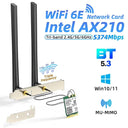It fulfills its function, recommended product.
Nice item, pleasant contact, beautiful finish
Good product good
Good product good
I bought it cheaply using coins haha.
I intend to purchase again next time.
Good product good
I bought it cheaply using coins haha.
I intend to purchase again next time.



















